Tennessee: Man Sues Traffic Camera Company Over Double Billing
Drivers often get the run around when dealing with the traffic ticket bureaucracy. When fighting city hall, individuals usually have no little hope of prevailing. Motorist Harry A. Church realized that with red light cameras, the system was outsourced from city hall to a company that could be more easily sued. After being double-billed by the Australian red light camera company Redflex Traffic Systems, Church filed a lawsuit that has been taken up by the US District Court for the Eastern District of Tennessee.
California: More Cities Dropping Red Light Cameras
Three Southern California cities are taking steps to rid themselves of red light cameras. In Westminster, the city council decided unanimously on Wednesday to ask voters to ban the use of red light cameras in a referendum scheduled for November 2012.
“We gave very clear instructions… to city managers that this red light camera system will not be discussed or considered to be installed in any part of our city,” Councilman Andy Quach said on Wednesday. “Tonight is basically a reiteration of that already existing policy…. The council has historically never liked anything that could be considered monitoring its citizens by Big Brother.”
North Carolina to Seize Speeding Cars That Fail to Pull Over
Beginning December 1, North Carolina will join Australia in having laws on the book mandating the seizure of vehicles for certain speeding offenses. On June 23, Governor Bev Perdue (R) signed the “Run and You’re Done” bill into law which authorizes a county sheriff to take and hold the car of anyone accused — not convicted — of speeding away from a police officer. The state House and Senate passed the measure unanimously.
Under the new law, the confiscation becomes permanent if a judge believes the car or motorcycle was used to elude a police officer while speeding more than 15 MPH over the limit with at least one other aggravating factor, such as having someone under 12 years old in the vehicle or the vehicle was at some point in a highway work zone, regardless of whether any workers are present.
Carmageddon Dreamin'
As a product of the Golden State, there’s a lot that I appreciate about California: the weather, the immigrant diversity, the entrepreneurial spirit, and the fact that people drive fast just to name a few examples. But, having lived for years among fellow California refugees here in Oregon, there’s a lot of things I don’t look forward to when I find myself headed South, and chief among these is the traffic. But there’s traffic and then there’s traffic, and Southern California is currently gearing up for what promises to be the worst weekend of traffic in memory. A crucial portion LA’s infamous 405 freeway is shutting down for repairs on Friday and it will be closed all weekend. To someone who has never been to, or driven in Los Angeles, the reconstruction of a major intra-urban bridge and the addition of a new commuter lane in a single weekend might seem like impressively brisk work and cause for huzzahs. But in Los Angeles, where they don’t know Detroit claimed the tagline years ago, locals are hunkering down for “Carmageddon”… and their reactions form a fascinating comment on our national ambivalence towards driving.
South Carolina Supreme Court Busts Town for Ignoring Camera Law
In 1998, South Carolina lawmakers mandated that police use dashboard mounted cameras to document the arrest of anyone arrested for driving under the influence of alcohol (DUI). The state supreme court on Monday ruled that the town of Mount Pleasant was not in compliance with this statute, which states a suspect “must have his conduct at the incident site and the breath test site video recorded.”
Washington: City Sued for Blocking Anti-Camera Referendum
Opponents of red light cameras and speed cameras are taking the offensive against city councils and camera vendors who have been taking extreme measures to keep the issue of automated ticketing off the ballot. A Cowlitz County, Washington superior court judge will hear arguments later today in a countersuit that accuses the city of Longview of violating an anti-SLAPP law. The state last year banned what are called “strategic lawsuits against public participation” with a measure that grants expedited court procedures to initiative sponsors and a $10,000 penalty against anyone found to be exploiting the legal system to thwart a petition drive.
California Court Softens Ban on Testimony Questioning Breathalyzer Accuracy
Since 1994, the California courts have banned defendants from using scientific evidence to challenge certain charges for driving under the influence of alcohol (DUI). To foil defense attorneys who had become increasingly successful with juries, the state created a “per se” DUI charge that made it a crime to have 0.08 reading on a breathalyzer machine regardless of whether an individual was actually drunk or had a 0.08 percent blood alcohol content (BAC) level. Because of physiological variability among individuals, some people with the same blood alcohol level might read higher or lower on the breath machine. Challenges based on these differences are known as “partition ratio” arguments. The California Court of Appeal on Friday loosened what had become effectively a ban on scientific criticism of breathalyzer reliability.
Spain: Speed Camera Gives Ticket for Driving Too Slow
Drivers who pass a photo radar location frequently drop their speed far below the legal limit to be absolutely certain no citation will come in the mail weeks later. In response, officials in Valencia, Spain have begun issuing photo tickets to drivers who are moving “too slow.” Motorist Jesus Llorens received just such ticket in the mail on June 14 for sluggish driving past a camera in an Opel Vectra. The alleged offense happened in February at 11am in the tunnel of the Avenida del Cid.
IIHS Red Light Camera Study "Not Credible"
[Editor’s note: My take on the IIHS study’s shortcomings can be found here]
The public relations arm of the insurance industry yesterday released a report claiming red light cameras are popular in big cities. About 24 hours after Insurance Institute for Highway Safety (IIHS) had begun spinning this study to media outlets, only a handful had run stories. Editors at one daily publication told TheNewspaper that they passed on writing about a claim they did not find credible.
Washington: Anti-Camera Group to Shame City Council
Opponents of automated ticketing machines in Monroe, Washington have turned to a new tactic in battling a city council that refuses to give up the use of red light cameras and speed cameras. Instead of engaging the city and a wealthy traffic camera company in a costly legal battle, the group BanCams.com decided Wednesday to shame the council at every election until officials follow the public will.
Europe: Silly Americans, Cities Are For Pedestrians
From its very first paragraph, a recent New York Times article trolls hard for defenders of America’s car-centric culture:
While American cities are synchronizing green lights to improve traffic flow and offering apps to help drivers find parking, many European cities are doing the opposite: creating environments openly hostile to cars. The methods vary, but the mission is clear — to make car use expensive and just plain miserable enough to tilt drivers toward more environmentally friendly modes of transportation.
Does that not have your red American blood boiling? Stand by for some technocratic condescension from a Euro-crat
“In the United States, there has been much more of a tendency to adapt cities to accommodate driving,” said Peder Jensen, head of the Energy and Transport Group at the European Environment Agency. “Here there has been more movement to make cities more livable for people, to get cities relatively free of cars.”
Though the piece continues generally in this vein, the NYT has blessedly decided that there is “Room For Debate” on this issue, and has posted a number of diverging perspectives on it. Urban planning is a notoriously heated topic, accentuating the urban-rural divide as well as the central-planning-versus-absolute-freedom ideological divide, both of which are more pronounced in the US than in Europe. With this in mind, let’s make sure we approach this topic in a respectful, constructive manner. It’s a topic that will inevitably come up again in the future, so let’s take this opportunity to practice discussing it without resorting to ideological name-calling. [HT: David Holzman]
Decision Overturning Houston Anti-Camera Referendum Appealed
The battle over the Houston, Texas red light camera program returned to the legal spotlight Monday. A majority of voters agreed with Francis M. Kubosh and Randall Kubosh in November that the automated ticketing machines should be removed, but a federal judge intervened earlier this month and overturned the election ( view ruling). The Kuboshes filed a reply brief with the US Court of Appeals for the Fifth Circuit Monday seeking to restore the result of the public vote.
UK Government Ends Speed Camera Secrecy
The UK government on Sunday officially terminated the policy of concealing safety and revenue information for individual speed camera locations. The Labour government had held this information secret, but Road Safety Minister Mike Penning, a member of the Conservative Party, insisted on making it readily available to the public online.
“We want to improve accountability and make sure that the public are able to make informed judgments about the decisions made on their behalf,” Penning said in a statement. “So if taxpayers’ money is being spent on speed cameras then it is right that information about their effectiveness is available to the public.”
Louisiana Supreme Court Allows Vehicle Searches on a Hunch
The Louisiana Supreme Court on Friday gave a green light to police officers looking to search automobiles without a warrant. The court ruled on an interim appeal in the ongoing trial of Derrick R. Kirton, 30, and Crystal N. Strate, 27, who were charged on February 23 with distribution and possession of heroin, respectively. A judge in the Orleans Parish Criminal District Court had ruled that the police search of Kirton’s vehicle was unlawful because it was not based on probable cause. The prosecution appealed.
Traffic Camera Companies Step Up Fight Against Ballot Measures
Although red light camera supporters insist the programs enjoy broad support among the public, traffic camera companies are taking extraordinary measures to block ballot measures that would gauge public sentiment on the issue. Anti-photo enforcement initiatives are meeting corporate opposition in five cities in Washington state while American Traffic Solutions (ATS) is moving to reinstate red light camera use rejected by a majority of Houston, Texas residents. Albuquerque, New Mexico appears to be the only city with an unopposed referendum vote in play.
AB 529: California's Red Light Revenue Raid
Not satisfied with impoverishing residents and unwary visitors with $500 automated tickets for being a tenth of a second late at a light, California’s legislators are moving a new bill allowing cities to reduce many posted speed limits by 5 mph. The lower limits will, in turn, allow them to shorten yellow lights, which will produce more red light camera tickets (four of the sponsoring cities have red light cameras).
Are You Ready For: Cars That Get Inside Your Head?
Google’s autonomous cars have already shown how close vehicles are to driving themselves in day-to-day traffic, but there’s still one uncontrollable, unpredictable, and often-irrational variable that autonomous cars still struggle to cope with: you, me and all the other haphazardly-programmed human beings on the road. And though predicting human behavior might be one of the most difficult tasks for a human-programmed computer, researchers at MIT are already digging into the challenge. Using model cars (one autonomous, one human-controlled) on overlapping tracks, 97 out of 100 laps avoided collision. But not all of those laps fell into the near-collision “capture set”… which, as it turns out, is what makes the human threat to autonomous cars so challenging.
According to [MIT Mechanical Engineering Professor Domitilla] Del Vecchio, a common challenge for ITS developers is designing a system that is safe without being overly conservative. It’s tempting to treat every vehicle on the road as an “agent that’s playing against you,” she says, and construct hypersensitive systems that consistently react to worst-case scenarios. But with this approach, Del Vecchio says, “you get a system that gives you warnings even when you don’t feel them as necessary. Then you would say, ‘Oh, this warning system doesn’t work,’ and you would neglect it all the time.”
Florida City Agrees to Refund Illegal Red Light Camera Tickets
Some Florida are beginning to regret jumping on the red light camera bandwagon without bothering to wait for state legislative approval. On Wednesday, the Pembroke Pines city commission voted to approve a settlement with attorney Jason D. Weisser who filed a lawsuit against a number of towns that began automated ticketing before state law was changed last July to allow automated ticketing.
New Jersey Supreme Court Criminalizes Weak Breathalyzer Blows
Blowing into a breathalyzer weakly is grounds to convict someone of the crime of refusal, according to a May 26 decision by the New Jersey Supreme Court. Refusal carries penalties nearly as severe as a conviction for driving under the influence of alcohol (DUI). On November 29, 2007 at 2:36am, Sergeant Joe Morgan of the Woolwich Township police department pulled over Aaron P. Schmidt after noticing that he was driving 10 MPH under the speed limit. Morgan administered the usual field sobriety tests and decided to bring Schmidt to headquarters for a breath test.
Canada: Anti-Photo Enforcement Effort Heats Up
A campaign to reform or eliminate the use of red light cameras and speed cameras is heading up in Winnipeg, Canada. Earlier this month the group WiseUpWinnipeg kicked off the effort with a two-page, full-color advertisement in the Winnipeg Sun newspaper.
“Attention Winnipeg drivers, you are being deliberately deceived,” the ad warned. “The city of Winnipeg is engaged in a deliberate and dangerous campaign to induce photo enforcement violations and siphon your hard earned (cash).”
California Considers Bill to Shorten Yellow Times
The amount of yellow warning time at California intersections would drop along with speed limits under a bill being considered by the state legislature. The Senate Transportation Committee will hold a hearing Tuesday on Assembly Bill 529, a proposal that re-writes the state’s speed trap law so that cities would be able to round down all speed limits after conducting a traffic study. The measure passed the full Assembly by a 77 to 0 vote on May 19.
South Carolina: Renegade Photo Speed Trap in Jeopardy
Reports from residents suggest Ridgeland, South Carolina is ready to concede defeat regarding the freeway speed camera system operated in defiance of state law. The large recreational vehicle used to mail tickets to travelers passing through the town’s seven-mile stretch of Interstate 95 is no longer as visible as it once was. Under attack in both the state legislature and the courts, Mayor Gary W. Hodges has yet to officially announce the end of his controversial ticketing program.
New York: Ferrari Sues Over Seized Ferrari
A US district court judge ruled Tuesday that James B. Ferrari had a point when he sued Suffolk County, New York over its seizure of his 2003 Ferrari 360 Spider. Ferrari was arrested on suspicion of driving under the influence of alcohol (DUI) in the city of Bellport on May 26, 2009. That gave county officials an excuse to grab a car that sold for $190,000 when new.
“Ferrari is not the most sympathetic plaintiff, to put it mildly,” Judge Joanna Seybert wrote, overruling the county’s motion to dismiss the case. “But the Due Process clause protects everyone — even repeated drunk drivers. Here, Ferrari has adequately pled that Suffolk County violated his due process rights.”
California: Los Angeles Police Commission Votes Down Cameras
Red light cameras may disappear from the nation’s second-largest city. The police commission in Los Angeles, California voted 5 to 0 yesterday to deny renewal of the city’s photo enforcement contract with American Traffic Solutions (ATS). The decision is a stunning reversal for a program that has been in place for over a decade. Between 2004 and 2010, a private vendor has issued over 183,000 tickets worth more than $80 million. The problem is that the state’s share of that revenue is so great that the city claims it is losing money from the cameras, even though tickets are $476 each.
California: Court Strikes Down Cost Neutrality in Napa
Napa, California has suspended all court action on red light camera tickets until June 13 at the earliest. The city is scrambling after a May 26 ruling by the Superior Court’s appellate division in Napa County that found the city violated state law by paying Redflex Traffic Systems based on the number of red light camera tickets the Australian company issued. The city is asking for a rehearing of the case, but if that is denied the suspension will last until June 28 while the city files an appeal.
Louisiana: Cops Beat Up Old Man For Accelerating Slightly
Police in Louisiana slammed a 67-year-old man into the ground, arresting him over a questionable traffic violation. The state court of appeals ruled May 11 that Calvin D. Miller’s injuries were only worth $25,000 in compensation. Miller had been driving his big rig logging truck home to Florien on US Highway 171 at 5:30pm on July 13, 2007. As he passed through the Village of Hornbeck, Officers Kenneth Hatchett, Jr., and Andy Mitchell, 19, pulled him over because he began speeding up “about 100 feet” before the limit changed from 45 to 55 MPH. Having driven the road for the past forty-seven years, Miller was quite familiar with the speed limit. He insisted he was not speeding.
“I can see right now you’re going to need an attitude adjustment,” Officer Hatchett said to the five foot, six inch tall elderly man.
California Court: Turn Signal Unnecessary When Nobody is Looking
California drivers do not need to use their turn signals if no other car is nearby according to a ruling handed down Friday by the state’s second-highest court. A three-judge panel of the court of appeal found that La Habra Police Officer Nick Wilson was in the wrong when he stopped Paul David Carmona, Jr. for making a right-hand turn in his Chevy SUV without signaling. Wilson was about 55 feet away traveling in the opposite direction at the time Carmona made his turn. The road was otherwise empty.
Australia: Lawmakers Reject Call for Speed Camera Review
A November study by the University of Adelaide recommended that a commission be established to review the placement and use of speed cameras in South Australia. Last month, the state parliament rejected any suggestion that policies relating to automated ticketing could be questioned.
As part of a parliamentary internship program, a research report reviewed existing research and applied the findings to the road safety situation in South Australia. The results were provided to Ivan Venning, a Liberal Party member of House of Assembly, who attempted on May 19 to win approval for a select committee to examine the use and effectiveness of photo enforcement. During debate, Venning pointed out several other states were currently conducting reviews of their own.
FLIR, License Plate Recognition, and Small Block, Oh My!
AOL’s Translogic [via PopSci] takes a look at the LAPD’s brand-spankety new Chevy Caprice PPV, the born-again Pontiac G8 that you can’t buy at a dealership. But rather than looking at the Caprice’s cop car-creaming performance (as did the Michigan State Police), this report focuses on the LAPD’s high-tech toys… which could just make the Caprice’s V8, rear-drive abilities less necessary than ever. Still, between the Holden-powered, rear-drive performance, the footprint-spying night vision camera and the automatic license plate recognition system, the Caprice PPV will probably make you think twice about speeding the next time you’re visiting the City of Angels.
June Is Lane Courtesy Month: Do Your Part!
Editor’s Note: Tomorrow is the first day of June, which the National Motorists Association has deemed “Lane Courtesy Month.” What follows is a piece entitled “Lane Courtesy: A Driving Ethic,” which was originally posted at the NMA’s website. There, the NMA has dedicated a whole page to issues of lane courtesy, including studies, fact sheets and other resources for the promotion of lane courtesy. TTAC thanks the NMA for drawing attention to the perennial aggravation of “Left Lane Bandits” and encourages you, our readers, to learn more at the NMA’s website and spread the good word. With just a little more awareness of lane courtesy, a better world is indeed possible…
New Mexico Supreme Court Lets Cops Grab Guns During Stops
Police officers in New Mexico can take guns away from drivers who pose no threat. The state supreme court ruled on May 20 that “officer safety” is more important than any constitutional rights a gun-owning motorist might have. The ruling was handed down in deciding the fate of Gregory Ketelson who was a passenger in a vehicle pulled over on November 13, 2008.
During the stop, Hobbs Police Officer Miroslava Bleau saw a 9mm handgun on the back seat floorboard. Ketelson and the driver of the car were ordered out and away from the car while Officer Shane Blevins grabbed the gun. The officers later learned that Ketelson, as a convicted felon, could not legally possess a firearm. The court, however, only considered whether the officers acted properly in taking the gun before they had any reason to suspect Ketelson, who was entirely cooperative during the encounter, of committing a crime.
Washington: City Sued for Blocking Anti-Camera Referendum
A lawsuit will be filed tomorrow in Longview, Washington seeking to force city officials to abide by the statutory filing requirement for an initiative that would give residents a say in whether or not red light cameras and speed cameras can be used in the community. On May 23, initiative co-sponsors Josh Sutinen and Mike Wallin handed 3628 signatures on a petition for a ballot measure to the city clerk — exceeding the legally required amount. The city council chose to make up its own procedure.
Australia: Speed Camera Driver Busted for Speeding
A government labor relations board in Australia yesterday upheld the firing of an employee busted for driving a speed camera van at more than double the speed limit. Stuart Rollo appealed to Fair Work Australia after he was terminated by Serco Traffic Camera Services in Victoria on December 10 for driving 102km/h (63 MPH) 50km/h (31 MPH) zone. On Thursday Commissioner G.R. Smith determined the firing was warranted by the circumstances.
Don't Drive Faster Than Your Speedometer Will Go
Editor’s Note: This piece, by John Carr, originally appeared at the National Motorists Association blog.
Wayne Crews recently posted an editorial on cost-benefit analysis and regulations. It’s worth a read.
In the 1970s the Carter administration prohibited speedometers from indicating speeds over 85 miles per hour. The idea was around before Carter, but his people implemented it.
Regulations require some justification. The justification was, people might not drive fast if they didn’t know how fast they were going. After some hand-waving and pulling numbers out of orifices it’s possible to fabricate a number of accidents and deaths per year prevented and call that the benefit of the regulation.
As part of Reagan’s regulatory reform the speedometer rule was scrapped. Rescinding a regulation requires some justification. The justification was that there was no real evidence that limiting indicated speed would reduce or had reduced driving speed.
An ineffective regulation is harmful because it imposes costs with no benefits.
Missouri: Judge Finds Red Light Camera Program Illegal
A circuit court judge in St. Louis, Missouri on Friday ruled the city’s use of automated ticketing machines violated state law. Since 2007, St. Louis gave the private company American Traffic Solutions (ATS) the right to issue tickets worth more than $30 million to the registered owners of vehicles that are photographed at local intersections. A class action suit by several motorists challenged the program on various legal and constitutional grounds.
Washington: Activist Judge Shuts Down Anti-Camera Vote
A judge with a history of overturning the will of Washington voters decided Friday to block the public from a say in the use of red light cameras. Chelan County Superior Court Judge John E. Bridges sided with traffic camera vendor American Traffic Solutions (ATS) which filed the suit to prevent a repeat of what happened in Mukilteo. In November, residents were allowed to vote on an anti-camera initiative, and 71 percent voted to ban the devices.
Ohio Appeals Court Tosses Laser Ticket Over Model Number
Cincinnati motorist Thomas H. Starks spent nearly a year fighting a $150 speeding ticket he received from the Ohio State Highway Patrol. On Monday the arguments he made on his own behalf were vindicated by the state’s second-highest court. A three-judge panel threw out evidence provided by a Laser Technology Inc (LTI) UltraLyte laser speed gun on the grounds that state officials never bothered to certify its accuracy. Instead, they just assumed the certification of an older model, the LTI 20-20, would suffice.
Starks would not let that difference slide past the judge. On June 24, 2010, Trooper Eric Witmeyer had accused Starks of speeding on Interstate 75 in Franklin Township where the speed limit had been reduced to 55 MPH. Starks was put on trial on July 23, 2010. Starks insisted that the state had to prove the device was properly certified.
Massachusetts: Another Town Meeting Rejects Red Light Cameras
Another Massachusetts jurisdiction that uses the broadly representative “town meeting” form of government has said “no” to the use of red light cameras. Residents gathered at the annual meeting in Raynham on Monday voted 104 to 95 against the idea of petitioning the legislature for permission to install automated ticketing machines. The town has a population of about 11,000, and all qualified inhabitants are allowed to vote.
Out-of-State Violations: Do The Laws Protect Or Impede Motorist?
Most Americans depend heavily on their license to drive – for their jobs, their family obligations and their recreational travel.
Naturally, some of our driving needs take us out of state. And as is well-known, traffic enforcement tends to focus on out-of-state drivers – maybe because it is that much harder for drivers to successfully contest out-of-state tickets…?
Compounding this problem is the fact that out-of-state violations almost inevitably impact the home-state driver’s license, sometimes even resulting in suspensions. And if out-of-state tickets are hard to contest, then clearing up interstate licensing actions can be nearly impossible.
In the nanny state’s never-ending battle to completely eliminate all driving risk, and its corresponding effort to make sure that every bit of your traffic record is available to every enforcement agency in the land, several compacts have been set up between the states for the sharing of motorists’ driving offense information.
This might be a good thing, if all transportation departments had fair, clear, and consistent rules and procedures for how out-of-state violations should impact home-state license privileges – and those agencies took responsibility for treating motorists fairly when problems arise.
The reality, though, is that such situations lead to vicious circles where neither the bureaucracy of the ticketing state nor the home state is willing to step up and unilaterally correct problems.
Does France Hate Speed Cameras More Than America Loves The El Camino?
Oregon: Study Finds Light Rail System Rarely Used
A study released earlier this month by the Cascade Policy Institute questioned whether pricey mass transit options in Portland, Oregon are really being used by the public. The city has been a leader in securing funding for various forms of passenger rail and trolley systems. The Obama administration, for example, pledged $745 million in federal gas tax dollars to pay for the construction of a $1.5 billion, 7.3 mile light rail project connecting Portland to Milwaukie. Transportation Secretary Ray LaHood has singled out the city’s priorities as for praise.
“By adding innovative transit opportunities, Portland has become a model livable community, a city where public transportation brings housing closer to jobs, schools, and essential services,” LaHood wrote in March.
Wisconsin Appeals Court Clarifies Dashcam Evidence Rules
The Wisconsin Court of Appeals on Wednesday gave its first ruling on how dashcam evidence would be treated at the appellate level. A three-judge panel decided that the proper legal standard when evaluating a video is to overturn a trial judge’s decision only it is “clearly erroneous.”
The context was provided by the November 4, 2009 arrest of Jeffrey D. Walli in Sheboygan. The court was asked to determine whether Sheboygan Police Officer Brandon Munnik had a valid reason for pulling Walli over in the first place. Munnik claimed that around 11:22pm Walli’s car nearly sideswiped him, so he flipped on his emergency lights, which triggered his dashboard-mounted video camera, and gave chase. Munnik testified that the resulting video showed Walli’s car over the center line and was a legitimate traffic violation. Walli’s attorney disagreed with that take.
California Court Denies Public Trial for Camera Tickets
Members of the public are not allowed to attend red light camera trials and other proceedings at the Superior Court of California courthouse in the city of Corona. For the past several weeks a policy has been place denying entry to anyone who does not have a direct involvement in a specific case scheduled that day. Court security checks anyone attempting to enter the building.
“Please be advised that this court facility is closed to the general public,” a sign posted at the door states. “The facility conducts criminal trials Monday through Friday and only jurors, witnesses and associated trial personnel are permitted to enter. On Fridays, the facility is also open for litigants reporting for court trial on traffic or minor offense matters.”
When Was The Last Time You Saw Traffic Stop?
Missouri Legislature Considers Speed Camera Expansion
Backroom dealing will determine whether speed camera use will become common in Missouri. The General Assembly yesterday agreed to convene a conference committee to iron out differences between House and Senate-passed versions of an omnibus transportation bill that cleared the state Senate on Tuesday. Among the the items up for debate is language that would allow any governmental jurisdiction to set up as many photo radar units as it pleases without any meaningful limitations on use.
Missouri: State Moves for Longer Yellow, Reduced Violations
The Missouri state Senate yesterday voted to require local jurisdictions to adhere to minimum standards for yellow warning time at intersections. State Senator Jim Lembke (R-St. Louis), an opponent of the use of red light cameras, introduced amendments to an omnibus transportation bill designed to limit the desirability of photo enforcement. His colleagues went along with language mandating that signals on all roads adhere to the bare minimum “nationally recognized engineering standards.”
Federal Court: Talking Back to a Cop Can Cost Your Job
Speaking your mind to a police officer during a traffic stop is not free speech, according to the Tenth Circuit US Court of Appeals. A three-judge panel ruled Thursday that Colorado Springs, Colorado Police Officer Duaine Peters did nothing wrong in having Miriam Leverington fired from her job as a nurse at Memorial Health System for talking back after he wrote her a speeding citation.
Redflex Shareholders Reject Buyout Offer
Australian investors in the photo enforcement firm Redflex Traffic Systems voted down a buyout offer from toll road giant Macquarie Bank and the asset management firm Carlyle Group at a general meeting in Melbourne today. The recently sweetened deal would have paid A$2.75 per share, or $305 million total, to take over the speed camera and red light camera business.
“Your directors unanimously recommend that shareholders vote in favor of the improved scheme proposal, in the absence of a superior proposal,” Redflex Chairman Max Findlay told assembled shareholders. “I can confirm that no superior proposal has been received.”
Where Does Distraction End And Reality Begin?
Ohio Supreme Court Defends Traffic Camera Program
Ohio’s supreme court has a long history of defending traffic tickets, whether they happen to be issued by police or a machine. The court on Wednesday maintained this tradition in tossing out a constitutional challenge to the photo enforcement hearing process, denying the challengers the chance to present their case in full.
Missouri: County Government Erases Red Light Camera Ordinance
For Jefferson County, Missouri, it was not enough to force a red light camera company to pack its bags and leave the area. Commissioners last week wiped the books clean, unanimously repealing the ordinance adopted last summer that had authorized the use of automated ticketing machines in the unincorporated parts of the county.
“The old three-member county commission decided to implement a red light camera program using ATS as the vendor,” Councilman Bob Boyer told TheNewspaper. “As is typical, ATS came to Jefferson County and found their problem for them. And then decided the best solutions were red light cameras.”
Are You Ready To: Avoid Traffic Before It Happens?
One of the worst things about traffic is that it’s so unpredictable. You can be whizzing along one minute, and crawling with the snails the next. Even the real-time traffic information that a few companies, notably Google, now provide, can be obsolete by the time you’re on your way.But a small cadre of lucky San Franciscans will soon be finding out where the traffic will be before it happens, thanks to a joint project by the California Center for Innovative Transportation (CCIT) at the University of California, Berkeley (my alma mater) the California Department of Transportation, aka Caltrans, and IBM.
Florida House Votes to Ban Red Light Cameras
Less than a year after the Florida legislature enacted legislation authorizing the use of photo enforcement, the state House of Representatives wants to reverse course. By a 59 to 57 vote yesterday lawmakers approved a bill repealing the provisions of the Mark Wandall Act.
“The unequivocal data that I’ve seen is that these intersections have become more dangerous not less dangerous with the advent of red light cameras,” bill sponsor Representative Richard Corcoran (R-New Port Richey) said. “All the data I’ve looked at has shown overwhelmingly that these intersections become less safe.”
"Transportation Opportunity Act" Moves Towards Freeeway Tolls, Pay-Per-Mile
Editor’s Note: The text of the “Transportation Opportunity Act” with section-by-section analysis can be downloaded in PDF format here [courtesy: bna.com]
The White House last week began circulating its legislative proposal for transportation reauthorization that included provisions to add toll booths to existing freeways and impose a tax for every mile driven. The “Transportation Opportunities Act” for the first time gave the Obama administration’s full approval to the concept of an added charge on drivers for the use of roads throughout the country, including on existing, untolled freeways in major metropolitan areas.
Massachusetts Court: Marijuana Smell Not Enough for Traffic Stop
The highest court in Massachusetts ruled Tuesday that a police officer is not justified in stopping and searching an automobile merely because he smells the presence of marijuana. The Supreme Judicial Court took up the case of Benjamin Cruz to clarify the legal impact of a 2008 voter referendum that had decriminalized possession of less than one ounce of pot in the Bay State.
California: Police Officials Narrowly Back Red Light Cameras
The Los Angeles, California police commission voted 3-2 on Tuesday to approve a report defending the status quo regarding the use of red light cameras. In January, the city council tasked the commission with reviewing a report by Safer Streets LA that found the department had misrepresented accident statistics to make the program appear effective ( view report, 250k PDF). Another report suggested lengthening yellow times one second beyond the bare minimum would reduce violations and accidents ( view report, 450k PDF). A third report concluded that 75 percent of tickets were issued for rolling right turns, which have never been a significant cause of accidents in Los Angeles ( view report).
What's Wrong With This Picture: Charlie Sheen's Other Escort Edition
The Washington Post‘s Paul Duggan blogs that Charlie Sheen arrived late to his Washington DC show after being escorted by local police officers at speeds of at least 80 MPH, an incident the actor documented in the tweet shown above. And lest TTAC be accused of pandering to lowest-common-denominator Charlie Sheen voyeurism, Duggan teases an interesting question out of the situation: can just anyone get a police escort and drive legally at illegal speeds? Hit the jump for your answer…
South Carolina: Internal Emails Reveal Speed Trap Profit Motive
An ongoing federal lawsuit against the speed trap town of Ridgeland, South Carolina uncovered internal emails last month that shed light on the motivation behind the state’s only photo enforcement program. Since July 2010, Ridgeland has allowed the private firm iTraffic to operate a mobile speed camera van on Interstate 95, despite a state law outlawing the practice and a pair of attorney general opinions warning that the photo ticketing was not legal ( view opinions).
Michigan: Police Search Cell Phones During Traffic Stops
The Michigan State Police have a high-tech mobile forensics device that can be used to extract information from cell phones belonging to motorists stopped for minor traffic violations. The American Civil Liberties Union (ACLU) of Michigan last Wednesday demanded that state officials stop stonewalling freedom of information requests for information on the program.
New Mexico Appeals Court to Take Red Light Camera Challenge
A New Mexico district court judge on Thursday transferred a case challenging the legality of photo enforcement systems to the state’s second highest court. In a written decision, Judge Manuel Arrieta suggested it would save time and expense for the court of appeals directly to weigh the case against Cristobal Rodriguez who was issued a red light camera ticket by the private company operating on behalf of the city of Las Cruces.
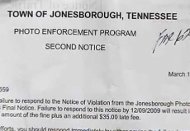







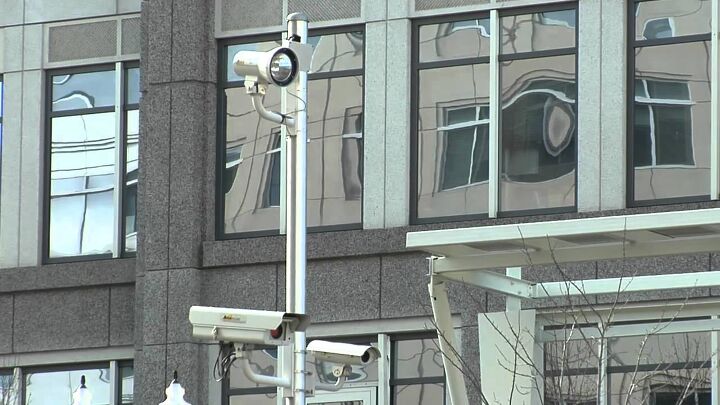

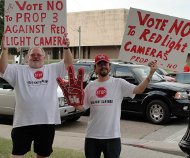







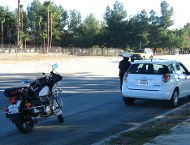


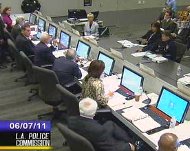



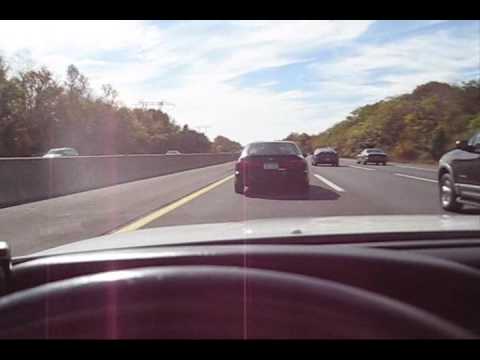






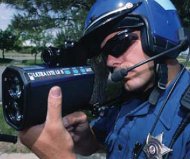


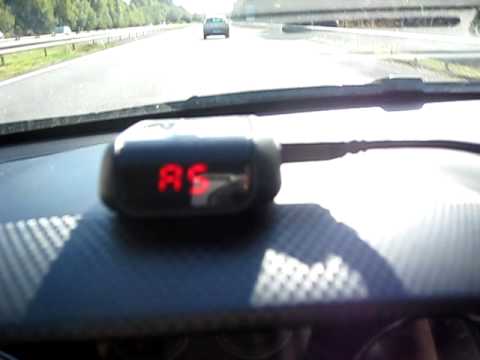


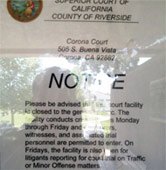
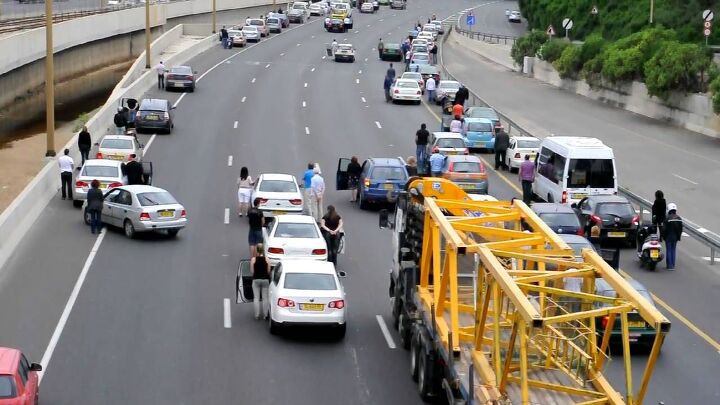

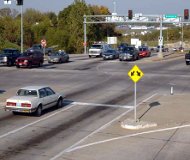


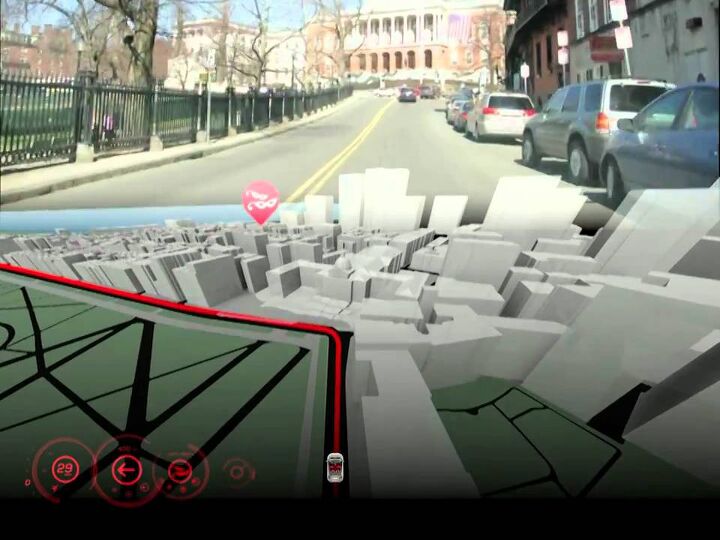






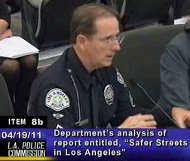
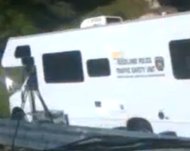
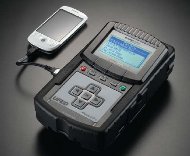













Recent Comments